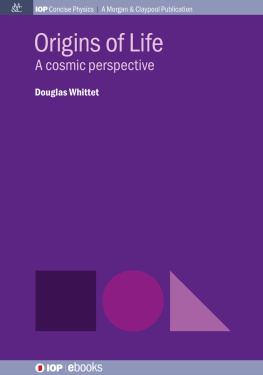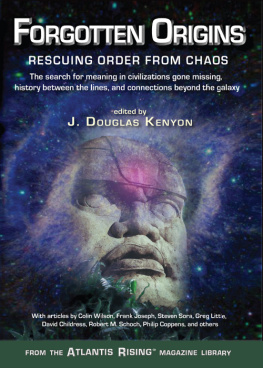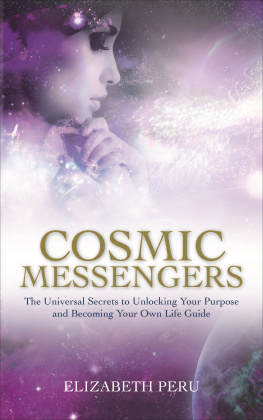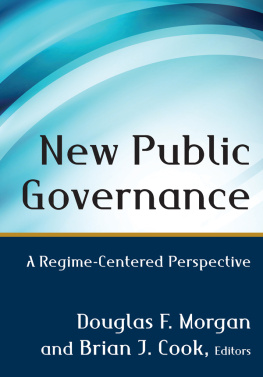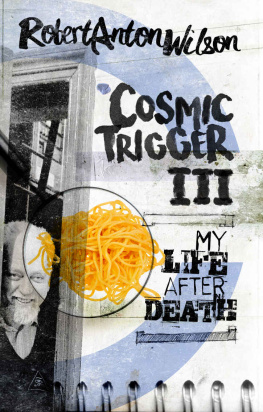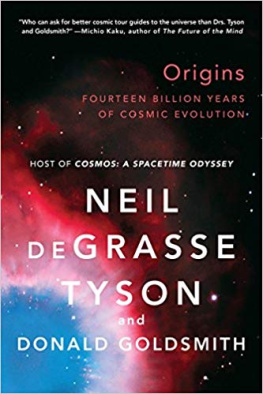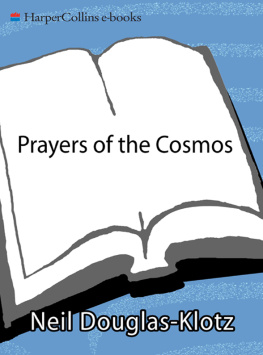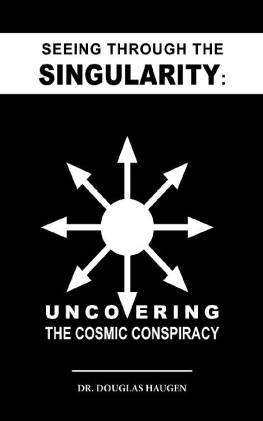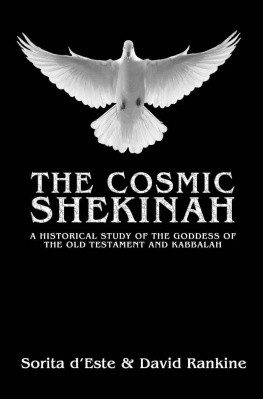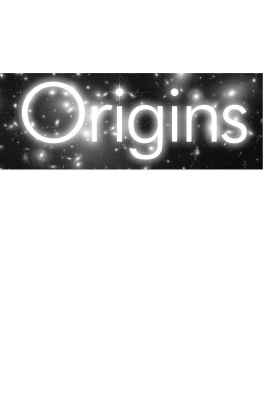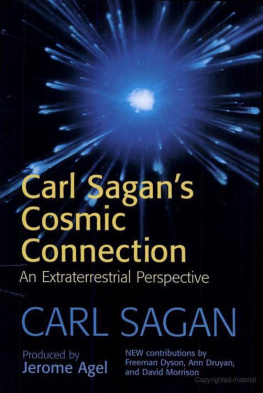Douglas Whittet - Origins of Life: A cosmic perspective
Here you can read online Douglas Whittet - Origins of Life: A cosmic perspective full text of the book (entire story) in english for free. Download pdf and epub, get meaning, cover and reviews about this ebook. year: 2017, publisher: Morgan & Claypool Publishers, genre: Religion. Description of the work, (preface) as well as reviews are available. Best literature library LitArk.com created for fans of good reading and offers a wide selection of genres:
Romance novel
Science fiction
Adventure
Detective
Science
History
Home and family
Prose
Art
Politics
Computer
Non-fiction
Religion
Business
Children
Humor
Choose a favorite category and find really read worthwhile books. Enjoy immersion in the world of imagination, feel the emotions of the characters or learn something new for yourself, make an fascinating discovery.
- Book:Origins of Life: A cosmic perspective
- Author:
- Publisher:Morgan & Claypool Publishers
- Genre:
- Year:2017
- Rating:4 / 5
- Favourites:Add to favourites
- Your mark:
- 80
- 1
- 2
- 3
- 4
- 5
Origins of Life: A cosmic perspective: summary, description and annotation
We offer to read an annotation, description, summary or preface (depends on what the author of the book "Origins of Life: A cosmic perspective" wrote himself). If you haven't found the necessary information about the book — write in the comments, we will try to find it.
Origins of Life: A cosmic perspective — read online for free the complete book (whole text) full work
Below is the text of the book, divided by pages. System saving the place of the last page read, allows you to conveniently read the book "Origins of Life: A cosmic perspective" online for free, without having to search again every time where you left off. Put a bookmark, and you can go to the page where you finished reading at any time.
Font size:
Interval:
Bookmark:

A cosmic perspective
Douglas Whittet
New York Center for Astrobiology
Department of Physics, Applied Physics and Astronomy
Rensselaer Polytechnic Institute
Morgan & Claypool Publishers
Copyright 2017 Morgan & Claypool Publishers
All rights reserved. No part of this publication may be reproduced, stored in a retrieval system or transmitted in any form or by any means, electronic, mechanical, photocopying, recording or otherwise, without the prior permission of the publisher, or as expressly permitted by law or under terms agreed with the appropriate rights organization. Multiple copying is permitted in accordance with the terms of licences issued by the Copyright Licensing Agency, the Copyright Clearance Centre and other reproduction rights organisations.
Rights & Permissions
To obtain permission to re-use copyrighted material from Morgan & Claypool Publishers, please contact .
ISBN 978-1-6817-4676-0 (ebook)
ISBN 978-1-6817-4677-7 (print)
ISBN 978-1-6817-4678-4 (mobi)
DOI 10.1088/978-1-6817-4676-0
Version: 20171101
IOP Concise Physics
ISSN 2053-2571 (online)
ISSN 2054-7307 (print)
A Morgan & Claypool publication as part of IOP Concise Physics
Published by Morgan & Claypool Publishers, 1210 Fifth Avenue, Suite 250, San Rafael, CA, 94901, USA
IOP Publishing, Temple Circus, Temple Way, Bristol BS1 6HG, UK
For Polly, Clair and James, and in memory of my parents
How did life on Earth begin? Does it exist elsewhere in the Universe? These are amongst the most fundamental and compelling questions in all science. In its 125th anniversary edition, published in 2005, the journal Science included How and where did life on Earth arise? in a list of compelling questions that scientists should have a good shot at answering, or at least know how to go about answering, over the next 25 years. Progress toward this goal depends on research that spans the traditional science disciplines, from mathematics, physics and astronomy to planetary and earth sciences, chemistry, and biology. The advance of science over past centuries has led to an understanding that the basic laws and concepts of mathematics, physics and chemistry, developed for the most part to describe phenomena on our home planet, are to the best of our knowledge universal: we can use them to predict the flightpath of a space mission, to identify molecules in distant galaxies, and to measure the expansion of the Universe. But is there a universal biology? Interdisciplinary research that attempts to answer this question is at the heart of the field now known as astrobiologythe study of the origins, distribution and future of life in the Universe.
This vibrant field is a natural choice for university science courses, providing opportunities not only to engage students' interest and imagination but also to illustrate the advantages of an interdisciplinary approach to problem solving. This book is based on a course of the same title, taught by the author as part of the science curriculum at Rensselaer Polytechnic Institute. The course provides a grounding in the concepts, methods and theories of astrobiology and origins of life research, and presents a summary of the latest findings. The plural Origins in the title is significant. Inevitably, the focus is on the origin of life on Earth, the only confirmed example we have of its existence in the Universe, but with an emphasis on the broader context: insight into the environments and processes that gave birth to life on our planet will naturally inform our assessment of the probability that it has arisen (or will arise) elsewhere.
The text is intended to be suitable for mid- and upper-level undergraduates and beginning graduate students, and more generally as an introduction and overview for researchers and general readers seeking to follow current developments in this interdisciplinary field. The reader is assumed to have a basic grounding in the relevant sciences, but prior specialized knowledge is not required. Each chapter concludes with a list of questions and discussion topics, and suggestions for further reading. Some questions can be answered with reference to material in the text, but others require further reading and some have no known answers! The intention is to encourage the reader to go beyond basic concepts, to explore topics in greater depth, and, in a classroom setting, to engage in lively discussions with class members.
My thanks are due, first and foremost, to my family: to my late parents Doreen and Douglas Whittet, for their love and support throughout my formative years and beyond, to Polly, my wife and dearest friend, and to my children, Clair and James. I am so proud of you all.
Many have contributed to my development as a scientist, as I evolved from a gung ho astronomer to an aspiring astrobiologist. The process began as long ago as 1971 when, on a whim, I purchased a book entitled Planets and Life by Peter Sneathnow long out of print but clearly ahead of its time! A motivation for writing a book of my own on this topic is the thought that it might inspire others in the same way that his did for me. I also owe a debt of gratitude to the late Jim Ferris, my predecessor as leader of a NASA-supported research and training center at Rensselaer Polytechnic Institute: for many years Jim carried the banner for Origins of Life research, long before it evolved into Astrobiology and became a popular main-stream field of study.
To my colleagues, friends and co-conspirators in the New York Center for Astrobiologyespecially Bruce Watson, Karyn Rogers and Linda McGownI am so grateful to have had the opportunity to work with you, to learn from you, and to have had so much fun along the way. I also learned much during my time of service on the Executive Council of the NASA Astrobiology Institute, chaired by Carl PilcherCarl, you were my perfect role model! And to the many students who have taken the course on which this book is based over the yearsI have learned from you as well! Your excitement and enthusiasm amplified mine, and your feedback improved the course and hence, I hope, this text. You may recognize many topics we debated in class in the end-of-chapter sets of questions and discussion topics.
It is a pleasure to acknowledge Joel Claypool, Jeanine Burke, Chris Benson, Melanie Carlson and others in the editorial and production teams at Morgan & Claypool and IoP Publishing, for their patience, encouragement and expert guidance. I am also indebted to all who gave permission to reproduce images included in the figures; these are acknowledged individually in the appropriate caption.
Doug Whittet
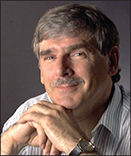
Doug Whittet is Emeritus Professor of Physics at Rensselaer Polytechnic Institute. He obtained his bachelor and doctoral degrees in Physics and Astronomy, respectively, from the University of St Andrews, and was Senior Lecturer and Professor of Astrophysics at the University of Central Lancashire prior to joining the Rensselaer faculty in 1991. He served as Director of the New York Center for Astrobiology from 2008 to 2016. His research interests include the physics and chemistry of the interstellar medium, with a focus on the chemical inventories of preplanetary matter in the disks and envelopes of newly-formed stars. In the course of his research, he was a principal investigator of observing programs with the Hubble Space Telescope, the Spitzer Space Telescope and the Infrared Space Observatory. He also has a strong interest in undergraduate education and curriculum development in astronomy and related fields, a product of which is the course on which this book is based.
Font size:
Interval:
Bookmark:
Similar books «Origins of Life: A cosmic perspective»
Look at similar books to Origins of Life: A cosmic perspective. We have selected literature similar in name and meaning in the hope of providing readers with more options to find new, interesting, not yet read works.
Discussion, reviews of the book Origins of Life: A cosmic perspective and just readers' own opinions. Leave your comments, write what you think about the work, its meaning or the main characters. Specify what exactly you liked and what you didn't like, and why you think so.

